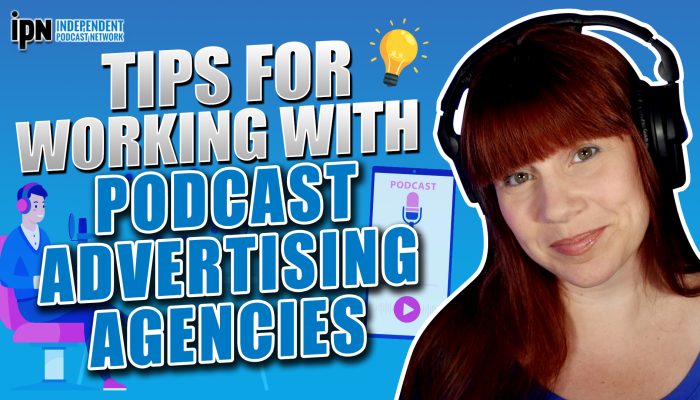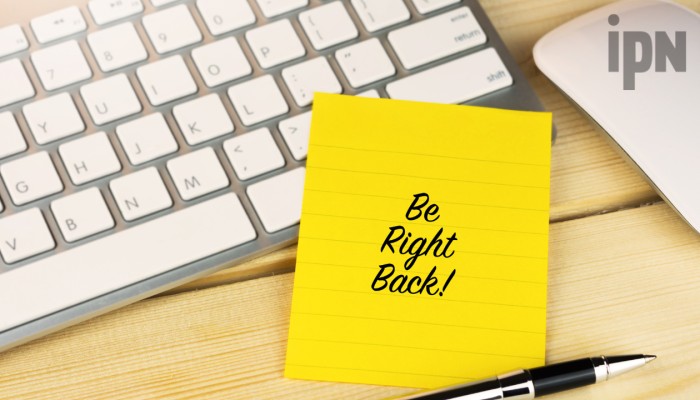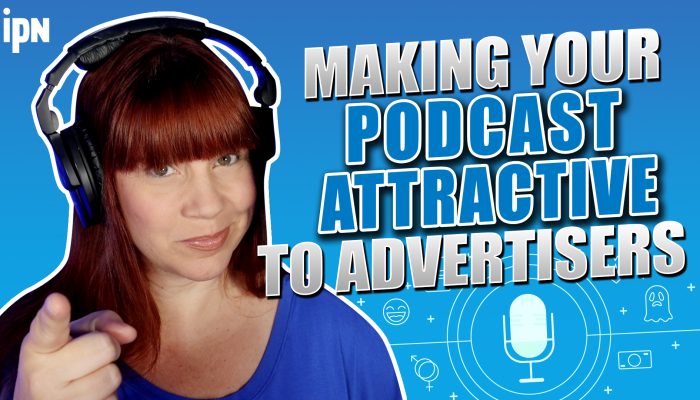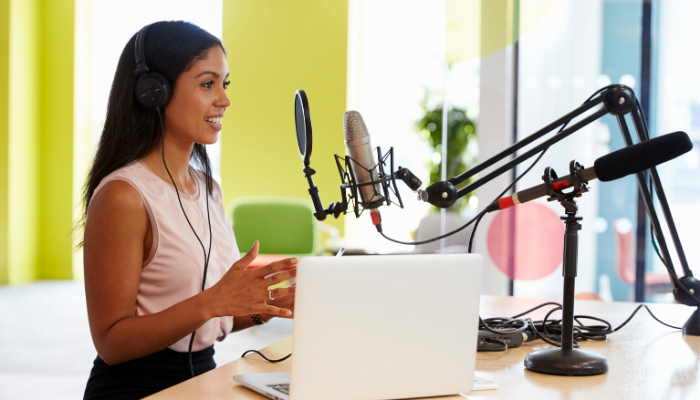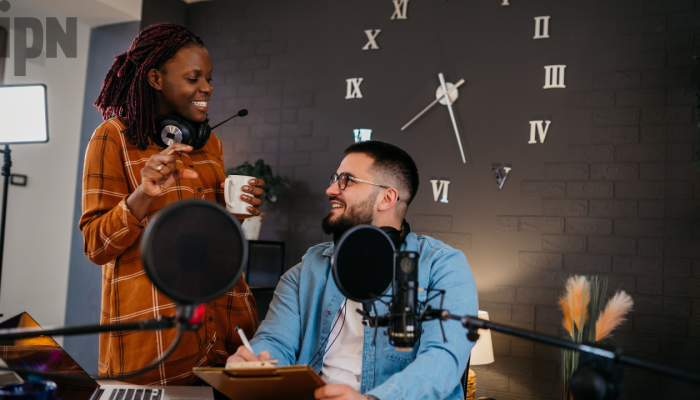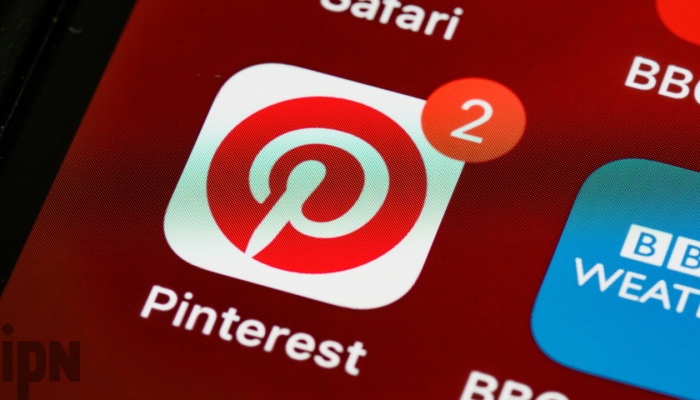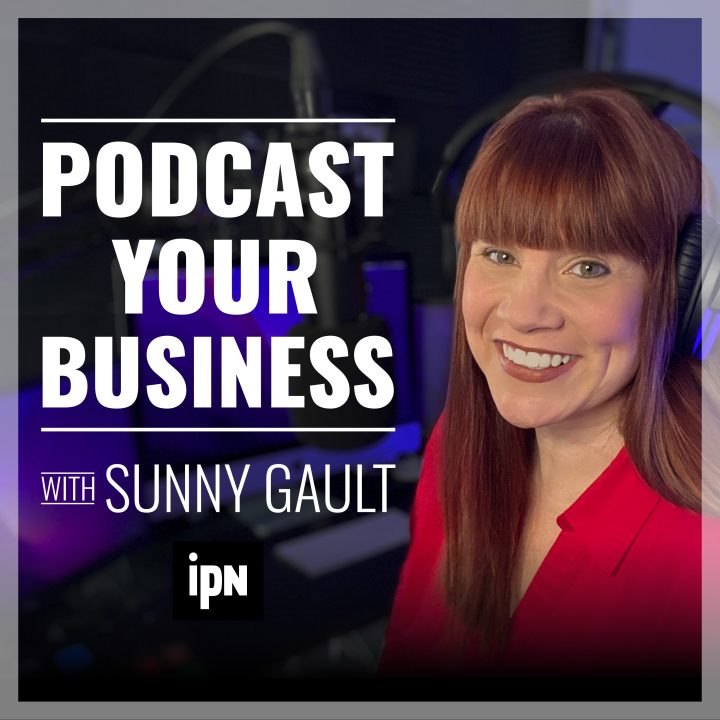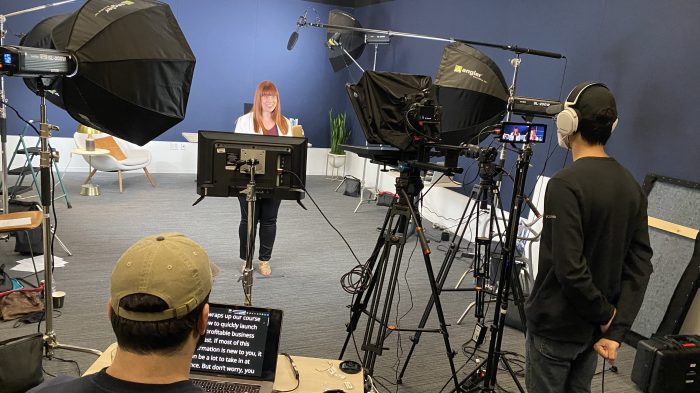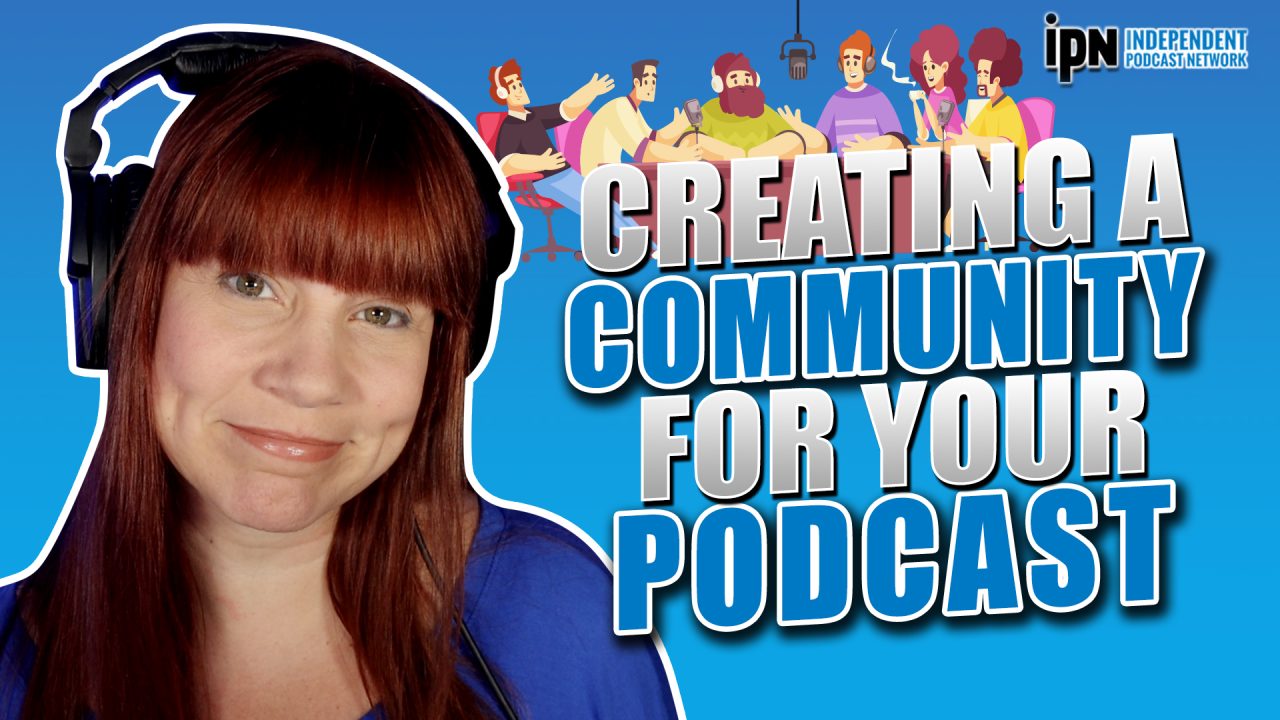
yes, you can build a community with just your podcast!
Podcasting can sometimes feel like a lonely sport. Right now, I’m by myself, sitting behind a microphone, recording in my garage. I’m picturing you, the audience, but I can’t see you or interact with you. That’s why having a podcast community is so important! It takes some extra work, but in the end, you’ll have grown your audience, gained some insight, and perhaps even made a few friends. Today we’re discussing how to create a community for your podcast!
Here’s what we’re going to discuss…
- How having a community helps your podcast
- Steps for building a strong podcast community
- Managing your community expectations
got everything you need for your podcast?
This podcast plan will help you keep track of everything you need to launch your podcast.

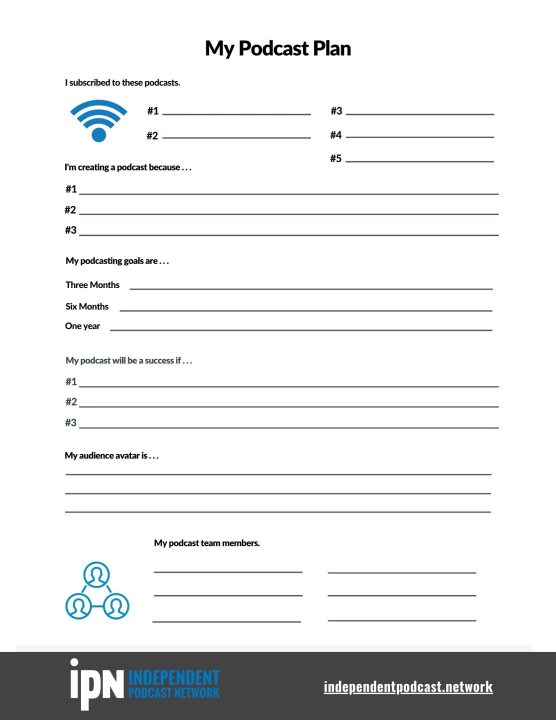
Episode Transcript
0:02
Podcasting can sometimes feel like a lonely sport. Right now. I’m by myself sitting behind a microphone recording in my garage. I’m picturing you, the audience, but I can’t actually see you or interact with you. That’s why having a podcast community is so important. It takes some extra work. But in the end, you’ll have grown your audience gained some insight, and perhaps even made a few friends. Today we’re discussing how to create a community for your podcast. Take it away, Mr. radio man. Podcast Your Business.
0:45
Hello, everybody. Welcome back to another episode of Podcast Your Business. I’m Sunny Gault. I am a podcast coach and mentor who’s a little bit under the weather today. Can you guys hear it in my voice? Hi pushed off recording today’s podcast episode for as long as I possibly could. I know the rules you can’t get on here with a raspy voice. Nobody will listen. Well, guys, I’ve been podcasting for the last 17 years. I am the founder and CEO of a company called Independent Podcast Network. And I would love for you to check us out. The website is independent podcast dot network. I know it’s super long. But it’s worth it. We’ve got a ton of free content, including whole courses on how to podcast available on our website, because I’m really passionate about podcasting. As I mentioned, I’ve been doing this a long time, and I want to help you guys. And then our network also works with podcasters if you’re ready to monetize, and you want to work with advertisers, but today, I am here with my little raspy voice, to show you how to create amazing podcasts for your business. And we do this by mastering the five P’s of podcasting. That’s right, the five P’s are prep, plan, produce, promote, and profit. And I created these five P’s are kind of lumped them together when I was releasing my very first course about how to podcast. And the course was all about how to have a successful show. And I thought, well, what are the different components. So those are the five P’s. And then in each episode for podcast, your business, we take a look at a different P word. Right? And we elaborate on it and we talk a little bit more about it, we go in depth and today is no exception. So Mr. radio man, which of the five P’s are we talking about today? Plan.
2:36
You know, this was a tough one I was like, which P do I put this in? Because creating a community can happen at various stages, it really depends on why you’re creating your community. So I put this into plan, because this is the stage where you could begin to think about this, you know, you may want to know before you go into the production process, if this is something you’re going to work on right away, it may impact what you do with your episodes. Or maybe this is something you decide to do later down the road. But it still belongs in this whole planning process. So here’s what we’re going to talk about today. There’s three bullet points. First, how having a community can help your podcast? Why even talk about creating a community? Why is this important for shows. So we’ll talk about that, we’re also going to go step by step and give you some ideas on how you can build a strong podcast community. And I think a lot of these can be applied to creating a community in general. But there are some recommendations I have specifically for podcasts. And then we’re going to talk about managing your community expectations because people kind of get into their head, oh, yeah, I’m going to have a community and it’s going to do this and that and the audience is going to love it. And that’s not always what happens. So we need to learn to manage our expectations. When it comes to community. It can be an incredible benefit to your podcast. But you also need to have some patience, because it may not happen overnight. All right, we will get started on all this great information right after this quick break.
4:11
So let’s just go ahead and dive into this today. I want to preserve my voices as much as possible. How does having a community help your podcast? Well, in the past, I have talked about how intimate podcast listening can be. Think about this. A lot of times when you’re listening to a podcast, it’s just you with your air pods or earbuds or headphones. So you are listening to somebody talk directly into your ears into your mind into your brain. I know that sounds a little bit weird, but it is it’s very intimate. You’re not sitting around with a group of people watching a television show. It’s a completely different experience. So when you have that sort of intimacy with someone, it is natural to want to take it to another level. Okay, and I kind of equate this to dating guys. It’s been a long time since I’ve dated. I’ve been married for 19 years now. But you know, when you go on that first date, and things go pretty well, and you’re like, Yeah, this could really work. Well, you can have another day, and you can keep having dates, but you’re gonna have to spice it up a little bit, right, that’s kind of how podcasting is. Yes, you’re gonna continue to put out great episodes. But sometimes you want to connect in other ways, right, you want to liven things up a bit. And the same is true for your community. Okay, you want to keep your audience engaged. And having some sort of community can definitely do that. You also want to create loyalty amongst your listeners, you want to bond with them more. But also, you want them to feel like they’re part of something. Now, I didn’t even really know that I was doing this many, many years ago when I launched my parenting podcast. But I naturally built in a community into the podcast, I didn’t have a separate community, we’ll talk about that in just a little bit like you didn’t have a separate site for a community. But even just through the podcast, I was able to create community. And we’re going to talk about how you can do that. But that ended up being a very important part of why I think the shows are still around today. And we still have people listening and still have people engaging with us is that on some level, I knew this was important way back when I also think having a community is another great way for you to communicate with your audience, and express things to them that you may not want to talk about on a podcast episode, I will give you an example. It just happened to me this week. So I have a separate podcast that I do. And I have episodes that come out, I don’t know, maybe three times a week, it’s very much involved. But as you can tell, I have been a little bit under the weather. And on Monday, I had zero voice. So this podcast usually comes out on Monday, Wednesdays and Fridays, I had zero voice, but I don’t have a community around this particular podcast. And I had no way to communicate with them. Hey, guys, an episode isn’t coming out today. Because I have no voice. I thought about maybe doing like a little, I don’t know, 10 second promo or, you know, kind of drop it into the feed to just say, Hey, guys, I’m so sorry. But I literally had like zero voice. And I kept thinking, Oh, wouldn’t it have been nice if there was some sort of community or way I could reach out to them and just say, Hey, I’m so sorry, this is what’s going on. You know, hopefully, we’ll be back on Wednesday or Friday or whatever, right. But I had no way to do that. So that’s just an another example of how having a community can really help you and your communication with your audience. They can also provide feedback for you. And I’ve done this many different times with different types of communities. But you may want to ask your audience questions to to improve the show, we’ll talk a little bit more about how we can do that. And for those of you who are thinking about working with advertisers, and sponsors, tell you what they love communities, it is another opportunity for them to engage with the product. So you may have a commercial spot on your show that talks about the product. But there’s no visual with that unless you have a video podcast, right. So this is another outlet where you can tell your audience about whatever the product or services, you can show pictures. And it’s also a lot easier when it comes to like links and things like that, like, hey, click this link for whatever 20% off this product, you can say that on a podcast ad, but it is so much easier to link to that in some sort of a post. So if you have a community, you can do that as well. Now let’s talk about the different steps that are needed. At least I think they’re needed. You might be able to add more to this. But these are the different steps that I thought of, and how to create a strong podcast community. You can have a community that’s just based on what you put out on your podcast, you don’t necessarily have to have a separate platform. Because I know when we think of community, we’re like, oh, that’s Facebook. That’s this and we think of outside platforms. But that’s not necessarily true. You can create a community with just the podcast information you’re putting out. Let’s talk about how you do that. And this is what I was referring to before when I said I accidentally did this with my parenting shows and I wasn’t even thinking about, you know, this cognitively. It just kind of happened.
9:30
So you build a podcast community, when you get listeners engaged with your show. And you don’t have to have a third party platform to do that. You can talk to them through your episodes just like I’m talking to you right now. And by the way, I think directly talking to people it sets the stage for having that personal relationship which encourages community so please don’t act like you’re talking to a big group. Act like you’re talking to an individual right? Make it personal. You You can ask them to do things to become involved in your show, you can ask them to write a podcast review. And when they do, you know, you discuss it on your podcast, you give them credit. Hopefully, it’s a good review. Otherwise awkward. You can also do shout outs, like, Hey, I just heard from so and so or so. And so just sent me this in the mail. Sometimes that’s called mailbag, you know, you can create different segments like this. For my parenting shows, I had, I had a ton of segments, oh, my goodness, I would have like funny parenting moments, and you can submit, you know, your funny stories. And whether that was, you know, some sort of written comment, then we would read it on the show, or perhaps they went as far to leave as some sort of video or not really video, what was it, just like an audio audio message, right. And then we would include that on the show as well. And it’s great, because then they hear themselves, and then they share it with their friends. And they feel like they’re part of something. So that is community, even without a third party site, you are creating community with your podcast. I think it’s also great to ask your listeners what they want. Again, this can be just done through your podcast. Ask them what kind of topics they want to know more about. You can also encourage things like, hey, send us an email, or I was talking about the voice messages send us a voice message or a voice note. You know, you can dedicate an episode to the people that submit ideas like, Hey, today, we’re talking about, you know, the the perfect baby stroller. And so and so suggested this topic. Thank you so much. You know, maybe they even wanted to, you know, ask specific questions. There are whole podcasts that are based on people submitting questions like that is the show, you find like a lot of like financial shows, people will submit financial questions and things like that, you know, that’s a whole episode, they just read someone’s question that they sent in, and then they answer the question. So you can imagine like, that’s really interesting for people, those are real life situations. And you’re helping them it’s kind of like counseling. But it makes for great podcast content. So that’s how you can do it within your show. And like I said, I did this with my parenting shows, I wasn’t even cognizant that I was doing that I did not have a third party platform until much later on.
12:32
So now we’re going to kind of transition, okay, because I do want to talk about how to build that kind of community on another platform. And you know, what kind of needs to happen to bring your audience over there. So first thing is you have to pick a platform. Now, I have been through many, many platforms. And by the time this episode comes out, and since this is more of an evergreen episode, I’m sure many, many other platforms are going to exist. So I’m not going to go into the details of which platforms I recommend. Here’s what I will tell you though, if you do not pick a platform that people are already on, you’re going to have a much more difficult time getting people to engage. That is just the nature of humanity. Right? If someone is already there, wherever you’re at whatever social media platform you’re on, they may not have the best tools, you may not agree with algorithms, you may not agree with censorship, or whatever your deal is. And I fall into that category. I am not on social media. But I will tell you, once I tried to take any community off of social media, it was so much harder for people to engage. So just keep that in mind. I’m not saying don’t do it, just keep that in mind. What’s nice about having these third party platforms is you now allow your audience to connect with each other. Because when you’re doing more segment type things, and they’re just participating in your podcast. Yes, you are communicating with them. But there’s really not a lot of, you know, your audience is communicating with another audience member. So keep that in mind. Because all of that can be, you know, really entertaining for your audience. And sometimes it’s nice to meet other people and connect with them in different ways. And having some sort of third party platform is a great way to do that. You can also share important content that may be links to articles that you think your audience would appreciate. I know a lot of people just like memes. Who doesn’t love a good meme, right? Um, I know in the parenting world, just you know, beautiful pictures of a mom with her baby with a lovely quote, you know, not necessarily even anything funny, although those are kind of cool too. But just like loving messages that oh my gosh, you would be you could have a whole channel or I mean, a whole account, social media account, where that’s all you do, and it would become wildly popular. are. So doing types of memes like that, obviously, you want to promote your episodes when they come out, just you know, don’t make it too much about yourself, really think about your audience and only make the content that you’re putting out just a fraction of what they get. Otherwise, they’re not gonna be interested, this is just self promotion, and they will go somewhere else. And trust me, there are many, many places online where they can find community other than with your podcast. Okay? Just keep it real here. I also think just like, you know, with your podcast episode, do you want to be as real and authentic as possible, that should carry over in whatever you’re posting to your community as well. So whatever you’re saying, you know, be honest, open up share, I would say just be human. And as a good human, please reply to their messages. So when they leave comments, respond, maybe it’s just an emoji of some sort, maybe it’s, you know, one line or whatever, but show that you appreciate them, the people that do this on their YouTube channels, the people that do this through their social media accounts, those are the ones that have these active and thriving communities. And once you have your community, one thing that you could do to kind of solidify these relationships, consider some sort of live event or meet up. And this does not have to be super elaborate. It could be that you’re already going to some place, right? Maybe you’re vacationing with your family or whatever. And you post something you say, hey, you know, is there anyone that listens to the show that’s also in this area? That’s great. Maybe if you’re a podcast, like this podcast is focused on podcasters, I could very easily say, hey, if anyone’s going to Podcast Movement, you know, let me know, we’ll have a little meetup, I would love to meet you. Right. So maybe there’s different things that you can do there.
16:47
Now, let’s briefly talk about managing your community expectations. And this is just kind of this is for your own sanity, you guys, because while I think communities can be amazing, they are a lot of work, I’m not going to lie, it ultimately will probably take a team for you to manage a successful community. But keep in mind, this is not this should never be viewed as a business strategy. This is relationship building. That’s the business you’re in when you’re creating a podcast community, it is going to take time, just like building any kind of relationship takes time. Remember the first date analogy I said at the beginning of this episode? Yeah, it takes a while to get from a first date to the second date. And you know, you’re then you’re moving in together, it takes time. It takes patience and understanding. So I would encourage you to do this in stages. If all of this seems very overwhelming, because I know some people listening to this may be like, geez, I just wanted to create a podcast. Now I gotta have this community. No, you don’t know you don’t. If you feel comfortable, start doing some of those small things. I said that you can incorporate it into your podcasts where there’s not a whole other platform that you have to deal with. Do this in stages, make sure you’re comfortable. Don’t just launch and be like, Oh, we’re gonna do this and this and this. And this. No, because it won’t happen. And you’ll be disappointed. let things happen organically. And naturally.
18:20
I made it through the episode, you guys I had to take several drinks of water, a lot more edits than normal. But I wanted to get this episode out for you guys. Because in a couple days, I gotta record the next episode. I’m way behind. All right, I do have a free handout for you guys. Today. I have a whole guide on for those of you who are planning your podcast right now you have not launched yet. And you’re kind of checking the boxes and you’re like, oh, I need to do this and this and this. Well, I have a guide that can help you get through it. So that is our freebie for today. I will include the link below in the Episode description. And we have lots of free resources on our website at Independent Podcast Network (https://independentpodcast.network). More amazing podcast episodes. In fact, today was episode 60. You guys weren’t I wasn’t sure how long I was going to do this podcast. So I’m happy to make it to episode 60. We’ve got great blog posts. In fact, a new blog post comes out every week that has something to do with podcasting. We’ve got videos, lots of handouts. If you are brand new to podcasting, I would encourage you to go to our website and take a look at some of our free video courses. Because these are designed for you to get up and running with your podcast as quickly as possible because you shouldn’t have to pay a ton of money to do that. Figure out if this podcasting thing is even a good fit for you first and then you could spend money later. There’s always time to spend money right. Until next week. Remember, podcasts are awesome!
